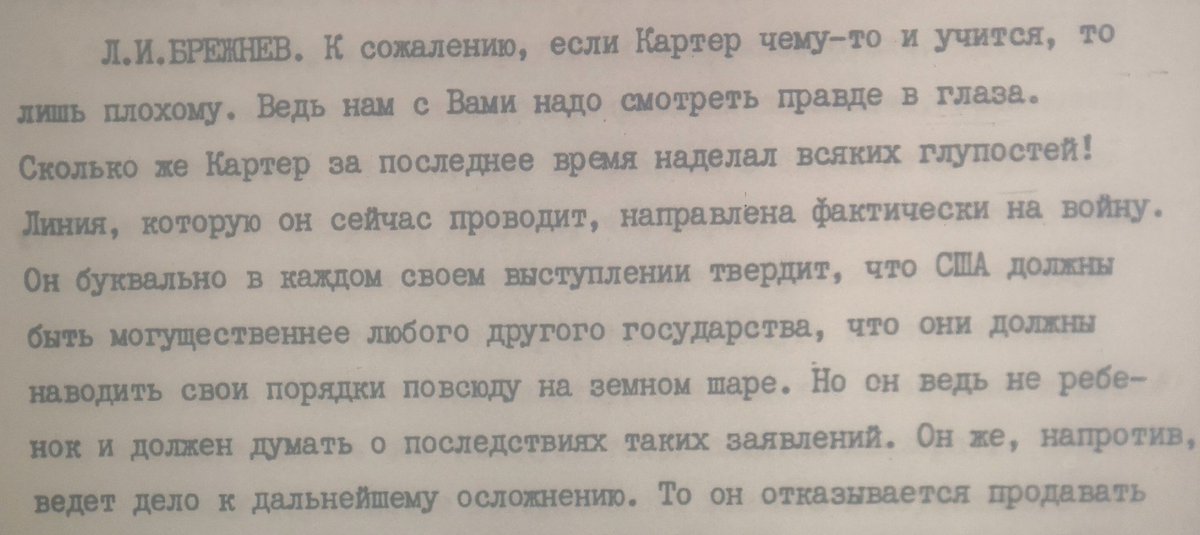After the @bellingcat investigation revealed FSB involvement in @navalny's poisoning, there are calls for urgent tough measures against Russia, ranging from new extensive sanctions to expelling Russia from international organisations.
Like many, I am outraged by findings of the investigation, and hold the regime responsible. But as a historian, I draw parallels to events in the past, because they hold clues to what awaits us in the near future.
The most pertinent parallel is the dramatic action by the Carter Administration in January 1980 to punish the USSR for the invasion of Afghanistan by 1) effectively withdrawing SALT II from ratification; 2) imposing a grain embargo, and 3) boycotting the Moscow Olympics.
Soviet-US relations rapidly entered a deep freeze that soon led to a very real fear of a nuclear war. Crucially, did these measures affect Soviet behaviour? The answer is no. The Soviets stayed in Afghanistan for another 10 years. They still held their Olympics.
The grain embargo hurt the American farmers more than it did the Soviet regime. Meanwhile, the Soviets grew increasingly frustrated and accused Carter of dangerous brinksmanship.
Here, for example, Brezhnev reacts to Jan. 1980 announcements by slamming Carter for "doing silly things" and "behaving like a child". Some low-running form of dialogue continued but, really, we were lucky things didn't end up worse than they did.
Soviet frustration and jumpiness, for instance, led to the infamous shoot-down of the Korean airliner in September 1983. Now, some would say, but the effort paid off in the end because Gorbachev came to power etc etc.
My answer to this is that Gorbachev was not a historical necessity. Gorbachev, in many ways, was an aberration. Expecting another Gorbachev in Russia is not a viable policy. So what to do, then?
The answer is: act calmly, and adopt Obama's maxim: don't do stupid s**t.

 Read on Twitter
Read on Twitter


